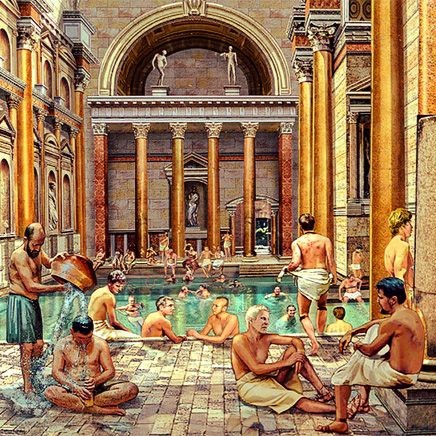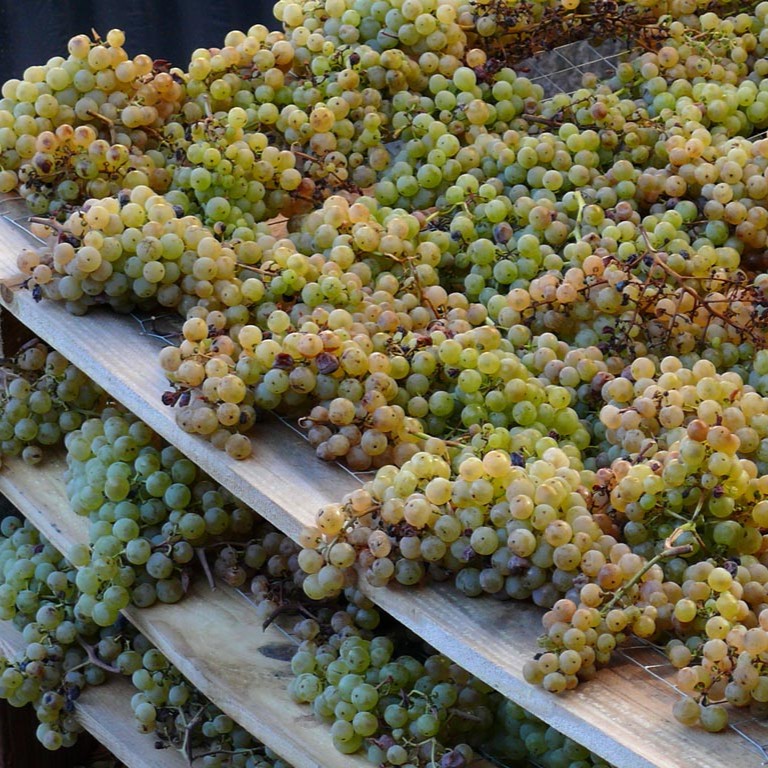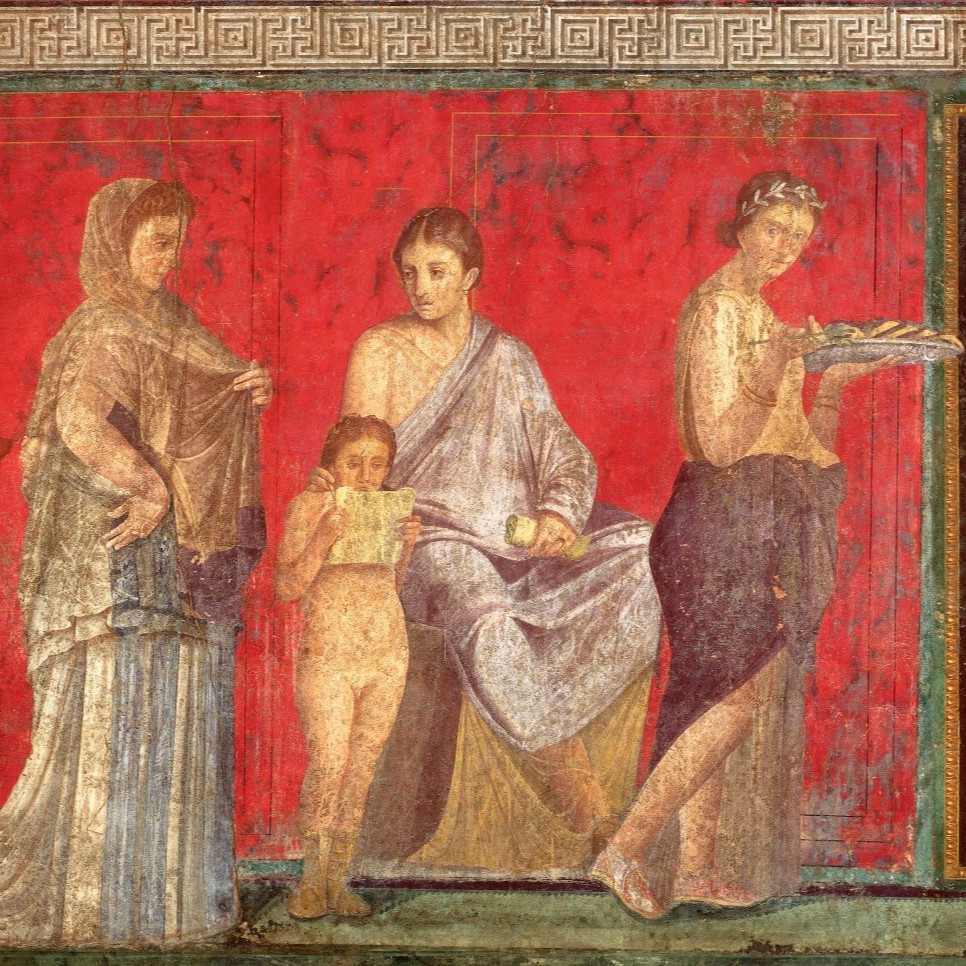Translated from french with Deepl (please notify us of errors)

It’s common knowledge that the Romans cut their wine with water, either hot or cold, depending on the occasion. Not to do so was to run the risk of sinking quickly into uncontrolled drunkenness, and above all to be seen as a barbarian ignorant of all the refinements of Greco-Roman civilisation – a Gaul, for example. It was also an act of impiety, as pure wine, or merum, was offered to the gods as a libation.
Cutting wine with water was therefore part of the Roman order of things… as long as the citizen mastered the proportion of the mixture, 30 to 50% water, it would seem.
What is less well known is that over-wetting the wine is also frowned upon, if it is done by a merchant or an innkeeper. The principle is simple: it’s fraud. By diluting the wine too much, the unscrupulous merchant is selling his customers water at the price of wine. Good for profits, but not for reputation.
A well-established reputation
A widespread dishonest practice, in Roman times it even became the butt of jokes, mockery and even anger.
One particularly irate customer, for example, left an account of his rage on a wall in Pompeii:
“These lies are costing you dearly, innkeeper! You sell us water and drink the wine yourself.”[1]
Some twenty years after Pompeii and its graffiti were buried under the ashes of Vesuvius, the reputation of innkeepers had not improved. The poet Martial criticised them with his usual corrosive humour:
“Struck by continuous rains, the grape harvest is soggy… You could not, innkeeper, even if you wanted to, sell pure wine!”[2]
In another epigram, he turns the argument on its head, referring to a very serious shortage of drinking water that had hit the city of Ravenna:
“In Ravenna, I’d rather have a cistern than a vineyard. I could sell water for much more [than wine];
A shrewd innkeeper in Ravenna served me recently. When I asked him for wine mixed with water, he sold me pure wine!”[3]
For Martial, the innkeeper is an inveterate fraud and when it is no longer to his advantage to wet the wine, he stops doing it whatever the customer asks.

A funerary stele, now lost, the text of which was found in Macedonia in 1899, gives the point of view of a merchant. His name was Vitalis, the slave of a certain Faustus, who died at the age of 16 while running an inn for his master. His epitaph reads:
“I beg you, travellers, do not blame my master if I have sometimes been able to give you less than your due.”[4]
It is obviously difficult to know whether the remorse is sincere, or dictated by the master whom the stele seeks to exonerate.
But in any case, fraud seems to have been widespread, and mistrust was always the order of the day.
Tip for suspicious customers

The suspicious customer could look to Cato the Elder for a method to confound the indelicate merchant:
“Do you want to know whether or not water has been mixed with your wine? Prepare an ivy vase and fill it with the wine you suspect has been tampered with. When it contains water, the wine will filter through the walls of the vase and the water will remain, because the ivy wood lets the wine through.”[5]
Admittedly, due to the presence of ethyl alcohol, the density of wine is a tiny bit lower than that of water. But wine, even when pure, is still 80% water… It’s hard to see how this could work. This is a new field of investigation for experimental archaeology!
[1] CIL IV.3948: Talia te fallant / utinam me(n)dacia copo / tu ve(n)des acuam et / bibes ipse merum.
Le graffiti n’est plus conservé aujourd’hui, voir pompeiiinpictures pour son emplacement.[2] Martial, Epigrams, 1, 56: Continuis uexata madet uindemia nimbis / non potes, ut cupias, uendere, copo, merum
[3] Martial, Epigrams, 3, 56-57: Sit cisterna mihi quam vinea malo Ravennae / cum possim multo vendere pluris aquam // Callidus imposuit nuper mihi copo Ravennae / cum peterem mixtum, vendidit ille merum.
[4] Funerary stele of Vitalis: Rogo vos viatores si quid minus dedi me<n>sura ut patri meo adicere(m) ignoscatis.
[5] Cato the Elder, On Agriculture, CXI. Si voles scire in vinum aqua addita sit, nec ne. Si voles scire in vinum aqua addita sit, nec ne, vasculum facito de materia hederacia. Vinum id, quod putabis aquam habere, eodem mittito. Si habebit aquam, vinum effluet, aqua manebit. Nam non continet vinum vas ederaceum
To find out more
- Marie-Adeline Le Guennec, Aubergistes et clients, L’accueil mercantile dans l’Occident romain (IIIe s. av. J.-C.-IVe s. apr. J.-C.), Publications de l’École française de Rome, 2019, Chapitre II. Pratiques économiques et commerciales des professionnels de l’accueil dans l’Occident romain.
- Paul Perdrizet, Trois inscriptions latines de Roumélie, Bulletin de Correspondance Hellénique Année 1900 24 pp. 542-552
May 2024, reproduction prohibited
Other articles in English from the Nunc est bibendum blog








